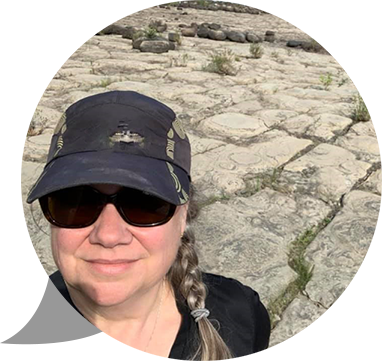
Technician, Curator and Outreach Coordinator, Earth Sciences

What is your current job title, and what do you do? Where do you spend most of your workday?
Technician, Curator and Outreach Coordinator for the Department of Earth Sciences, Carleton University in Ottawa, Ontario. I am also a member of the Canadian Geoscience Education Network (CGEN), the Ottawa Gatineau Geoheritage Project, and the Canadian Federation of Earth Sciences.
I manage collections used by professors and instructors to teach geological concepts in our undergraduate and graduate student programs. Collections include rocks, fossils, minerals, thin sections, maps, microscopes, field equipment, images and more. I create displays for the department and for public events. I also visit elementary and secondary school classrooms, support their teachers with resources and professional development workshops, and create public events like Geoheritage Day, where we host geosites around our city, speaking to visitors about the visible geology.
I work at a university. Mostly I work in an office and various spaces on campus, but sometimes I have opportunities to travel with students, or work with groups across Canada for teacher education programs, informal education workshops, and geological meetings.
What education, training and past work experience do you have?
What’s great about being an Earth Scientist?
What is your most memorable moment/event/place/person related to your experience as an Earth Scientist?
What advice would you give someone who is interested in an Earth Science career?
Ready to rock?
To learn more about how to get on your way, reach out to those in the know.
